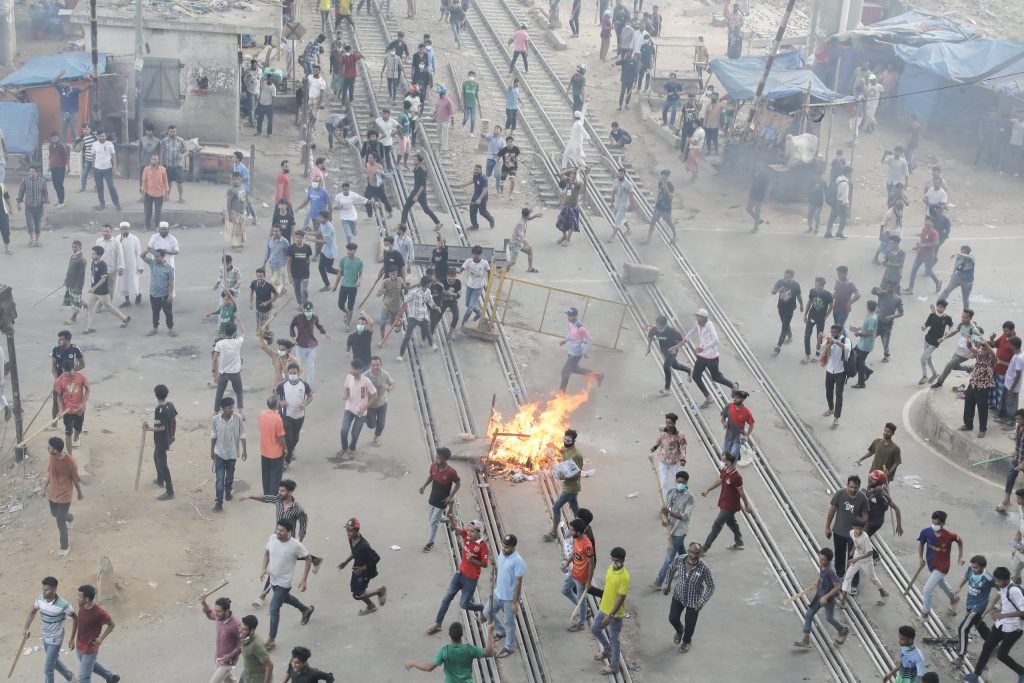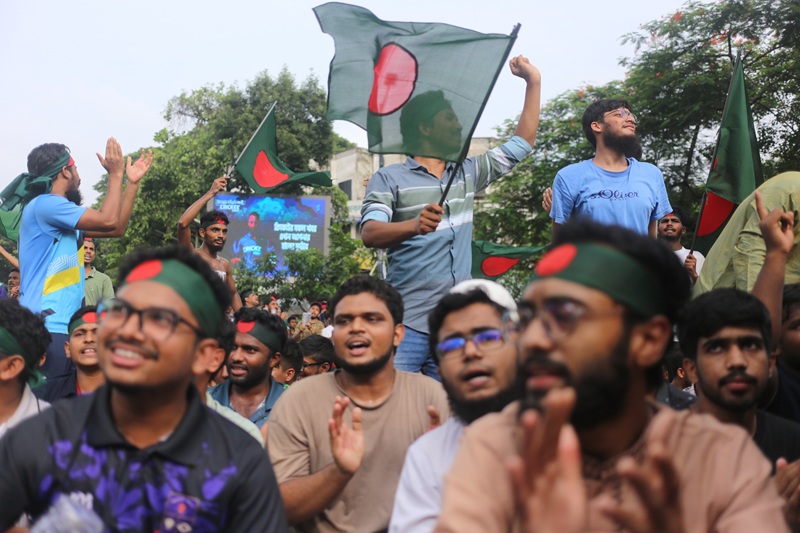As the month of July in 2024 progressed slowly towards one of the most tumultuous moments in the history of Bangladesh (though no one could have predicted), a full bench of the Appellate Division scheduled to hold a hearing on July 10, 2024 on the government petition challenging the HC verdict.
On the 9th of July, 2024, two students from the University of Dhaka, Al Saadi Bhuiyan, student of Anthropology Department and DU Journalist Association President, and Ahnaf Sayeed Khan, student of Urdu Department student submitted a petition through senior lawyer Shah Monjurul Hoque against the High Court verdict. In the petition, they sought an order of stay from the Appellate Division on the HC verdict.
The next day, July 10, the Appellate Division of the Supreme Court issued a status quo on the High Court order over retaining the quota in government jobs on the same day, but the anti-discrimination student movement leaders on July 10 last year vowed to continue their protests demanding quota reform in government jobs.
Following the ruling, the then Chief Justice urged the student protesters to return home. However, the protesting students vowed to continue their demonstrations until the government formed a commission to reform the quota system and passed a law in Parliament to that effect.
Sarjis Alam, a key organiser of the anti-discrimination student movement, told protesters at the Shahbagh intersection on the evening of July 10 that they would relent only if they received assurance from the highest executive authority that the quota system would be reformed through a commission.
“We want the Parliament to enact a law reforming the quotas,” he said.
Meanwhile, Asif Mahmud, another key organiser, announced that they would continue the blockade from 3:30 p.m. on July 11.
“Students from universities and colleges across the country will continue the Bangla Blockade programme from 3:30 p.m. tomorrow (July 11) by occupying highways and railways in their respective areas. In Dhaka, we will start the programme in front of the Dhaka University (DU) Central Library and spread to key intersections,” said Asif, now an adviser to the interim government.
Earlier, after a one-day break, the student protesters resumed the “Bangla Blockade” around 10:30 a.m. on July 10, occupying key intersections, major highways, and rail lines in Dhaka and other parts of the country.

As road and rail communications were snapped, leaving commuters in utter distress, the day-long blockade brought daily life in the capital, Dhaka, to a standstill. The epicentre of the protest was Shahbagh.
Before 10 a.m., students from different residential halls of Dhaka University gathered in front of the Central Library and then marched in processions, chanting quota-reform slogans.
From there, they moved in groups to different key points and blocked them, including Shahbagh intersection, Karwan Bazar, Intercontinental intersection, Bangla Motor, Farmgate, Shikkha Chattar, Matsya Bhaban, Chankharpul, Chankharpul Flyover, and Bongobazar.
Students from Dhaka University, Eden Mohila College, Begum Badrunnesa Government Women’s College, and Sheikh Borhanuddin College took part in the blockade.
Jagannath University students blocked the Gulistan Zero Point and Paltan intersections from 10 a.m., shutting down traffic through Nur Hossain Square. Students from Dhaka College blocked the Science Lab intersection.
Jahangirnagar University students blocked the Dhaka-Aricha Highway. Students from Government Titumir College blocked the Mohakhali section of the Dhaka-Mymensingh Highway.
Students from Rajshahi University, Rajshahi University of Engineering and Technology (RUET), and Rajshahi College blocked key roads in the Rajshahi region.
Students of Shahjalal University of Science and Technology blocked major roads, including the Sylhet-Sunamganj Highway.
Cumilla University students blocked the Dhaka-Chattogram Highway, while students from Bangladesh Agricultural University blocked major roads in Mymensingh.
Students of Begum Rokeya University laid siege to the Modern intersection in Rangpur, while students of Chittagong University and affiliated colleges blocked key roads, including Dewanhat in Chattogram.
Pabna University of Science and Technology students blocked the Dhaka-Pabna Highway, and students of Hajee Mohammad Danesh Science and Technology University blocked the Dhaka-Dinajpur Highway.
Students from Jatiya Kabi Kazi Nazrul Islam University blocked the Dhaka-Mymensingh Highway, while students from Barisal University and BM College blocked the Dhaka-Barisal and Dhaka-Patuakhali highways, respectively.
Students had been staging street protests since July 1, demanding a rational reform of the quota system in government jobs.
On July 10, as per their declared programme, students at Dhaka University and other campuses observed a class and exam boycott for the fourth consecutive day.
However, in response to the protests, Awami League General Secretary Obaidul Quader said, “The court’s decision is final. I urge students to refrain from programmes that cause public suffering and return to their educational institutions.”
Following the Supreme Court’s ruling, Attorney General AM Amin Uddin stated that the quota system would not apply to the circulars issued based on the 2018 government directive that abolished the quota system in the ninth to 13th grades of government jobs.
“Now there is no logic in continuing movements over quota,” he said, urging the agitating students to concentrate on their studies.


